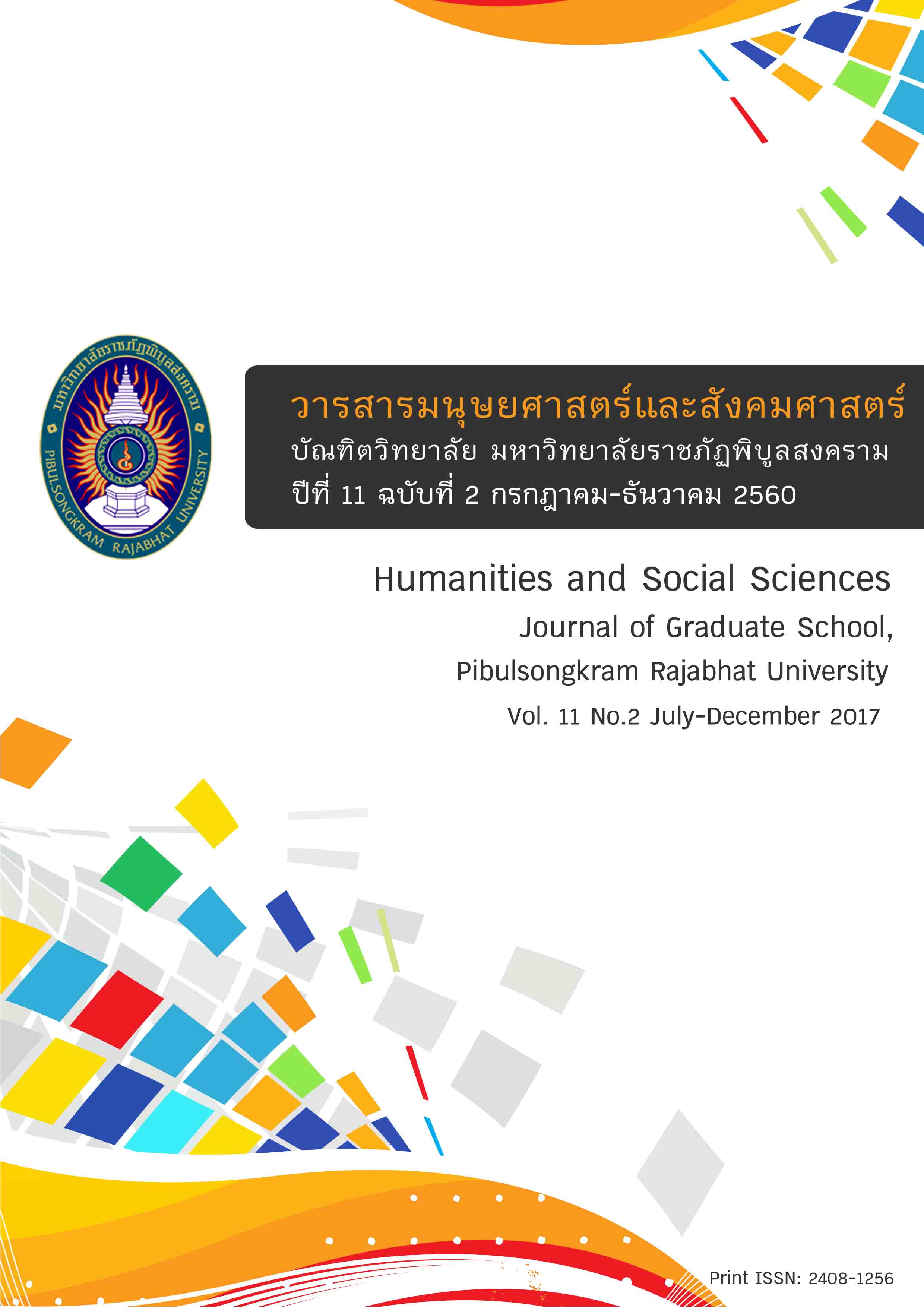The Development of Training Curriculum on Basic Computer to Enhance Computing Capabilities for Undergraduate Students Nakhon Sawan Rajabhat University
Keywords:
Training Curriculum, Basic Computer, Computing CapabilitiesAbstract
งานวิจัยนี้เป็นการพัฒนาหลักสูตรฝึกอบรม เรื่องคอมพิวเตอร์พื้นฐาน เพื่อเสริมสร้างความสามารถด้านคอมพิวเตอร์สำหรับนักศึกษาระดับปริญญาตรี มหาวิทยาลัยราชภัฏนครสวรรค์ มีจุดมุ่งหมายเพื่อ 1) สร้างและหาคุณภาพหลักสูตรฝึกอบรม และ 2) ทดลองใช้หลักสูตรฝึกอบรม เรื่อง คอมพิวเตอร์พื้นฐาน ด้วยการ เปรียบเทียบผลสัมฤทธิ์ของนักศึกษาที่ได้รับการอบรมโดยใช้หลักสูตรฝึกอบรม กับเกณฑ์ร้อยละ 60 เปรียบเทียบทักษะหลังการใช้หลักสูตรฝึกอบรม ของนักศึกษาที่ได้รับการอบรมโดยใช้หลักสูตรฝึกอบรม กับเกณฑ์ร้อยละ 60 และเพื่อศึกษาความพึงพอใจของนักศึกษาที่มีต่อหลักสูตรฝึกอบรม กลุ่มตัวอย่างในการวิจัย คือ นักศึกษาระดับปริญญาตรี จำนวน 32 คน ภาคเรียนที่ 3 ปีการศึกษา 2558 ได้มาจากวิธีการสุ่มแบบกลุ่ม (cluster random sampling) โดยมีหน่วยการสุ่มเป็นห้องเรียน เครื่องมือที่ใช้ในการวิจัย ได้แก่ แบบประเมินคุณภาพของหลักสูตรฝึกอบรม แบบทดสอบวัดผลสัมฤทธิ์ทางการเรียน แบบวัดทักษะด้านคอมพิวเตอร์ และแบบวัดความพึงพอใจต่อหลักสูตรฝึกอบรม ใช้แบบแผนการวิจัยที่เป็นการวิจัยที่มีกลุ่มตัวอย่างเดียว ทดสอบหลังเรียนเทียบกับเกณฑ์ วิเคราะห์ข้อมูลด้วยการหาค่าเฉลี่ย ค่าส่วนเบี่ยงเบนมาตรฐาน ค่าเฉลี่ยร้อยละของคะแนนหลังเรียนเทียบกับเกณฑ์ร้อยละ 60 และการทดสอบด้วยค่าที (t–test dependent) ผลการวิจัยพบว่า
- หลักสูตรฝึกอบรม เรื่องคอมพิวเตอร์พื้นฐานโดยรวมมีคุณภาพอยู่ในระดับดีมาก โดยทุกด้าน
มีคุณภาพอยู่ในระดับดีมาก โดยสูงสุดคือ ด้านหลักสูตรการฝึกอบรม รองลงมาคือ ด้านแผนการฝึกอบรม และด้านคู่มือการฝึกอบรม ตามลำดับ - ผลสัมฤทธิ์ทางการเรียนของนักศึกษาที่ได้รับการฝึกอบรม มีค่าเฉลี่ยร้อยละของคะแนนหลังเรียน
สูงกว่าเกณฑ์ร้อยละ 60 ที่กำหนดไว้อย่างมีนัยสำคัญทางสถิติที่ระดับ .05 ทักษะทางคอมพิวเตอร์ของนักศึกษาหลังการใช้หลักสูตรฝึกอบรม มีค่าเฉลี่ยสูงกว่าเกณฑ์ร้อยละ 60 ที่กำหนดไว้อย่างมีนัยสำคัญทางสถิติที่ระดับ .05 และความพึงพอใจของนักศึกษาที่มีต่อหลักสูตรฝึกอบรม โดยรวมอยู่ในระดับมาก โดยเรียงลำดับจากสูงสุด คือ ด้านปัจจัยนำเข้า ด้านกระบวนการ และด้านผลผลิต
The purposes of this research were 1) to construct a training curriculum on basic computer to enhance computing capabilities, and 2) to try out the training curriculum by comparing achievement test results, computer skills, and students’ satisfaction toward the training curriculum. The sample group was 32 bachelor degree students in the third semester of 2015 academic year, selected through cluster random sampling. The research tools were a training curriculum quality evaluation form, an achievement test, a computer skills evaluation form, and a satisfaction evaluation form. The research was a one-group posttest design. The data were analyzed using means, standard deviations, percentages of posttest results compared with a 60 percent criterion, and t–test dependent scores.
The results were as follows:
- The general quality of the training curriculum was at a “very good” level, and all the aspects of the training curriculum were also at a “very good” level. The aspects that received the highest scores and the lowest scores were the training curriculum, the plan of the training, and curriculum manual respectively.
- The students achieved higher achievement scores than the 60 percent criterion, a significant 0.5 statistical level. They also achieved higher computer skills than the 60 percent criterion, a significant 0.5 statistical level. Finally, the students’ overall satisfaction with the training curriculum was at a “good” level, and the average scores from high to low went to the Input, the Process, and the Output respectively.
Downloads
Published
How to Cite
Issue
Section
License
Any articles or comments appearing in the Journal of Humanities and Social Sciences, Rajabhat Phibulsongkram University, are the intellectual property of the authors, and do not necessarily reflect the views of the editorial board. Published articles are copyrighted by the Journal of Humanities and Social Sciences, Rajabhat Phibulsongkram University.









